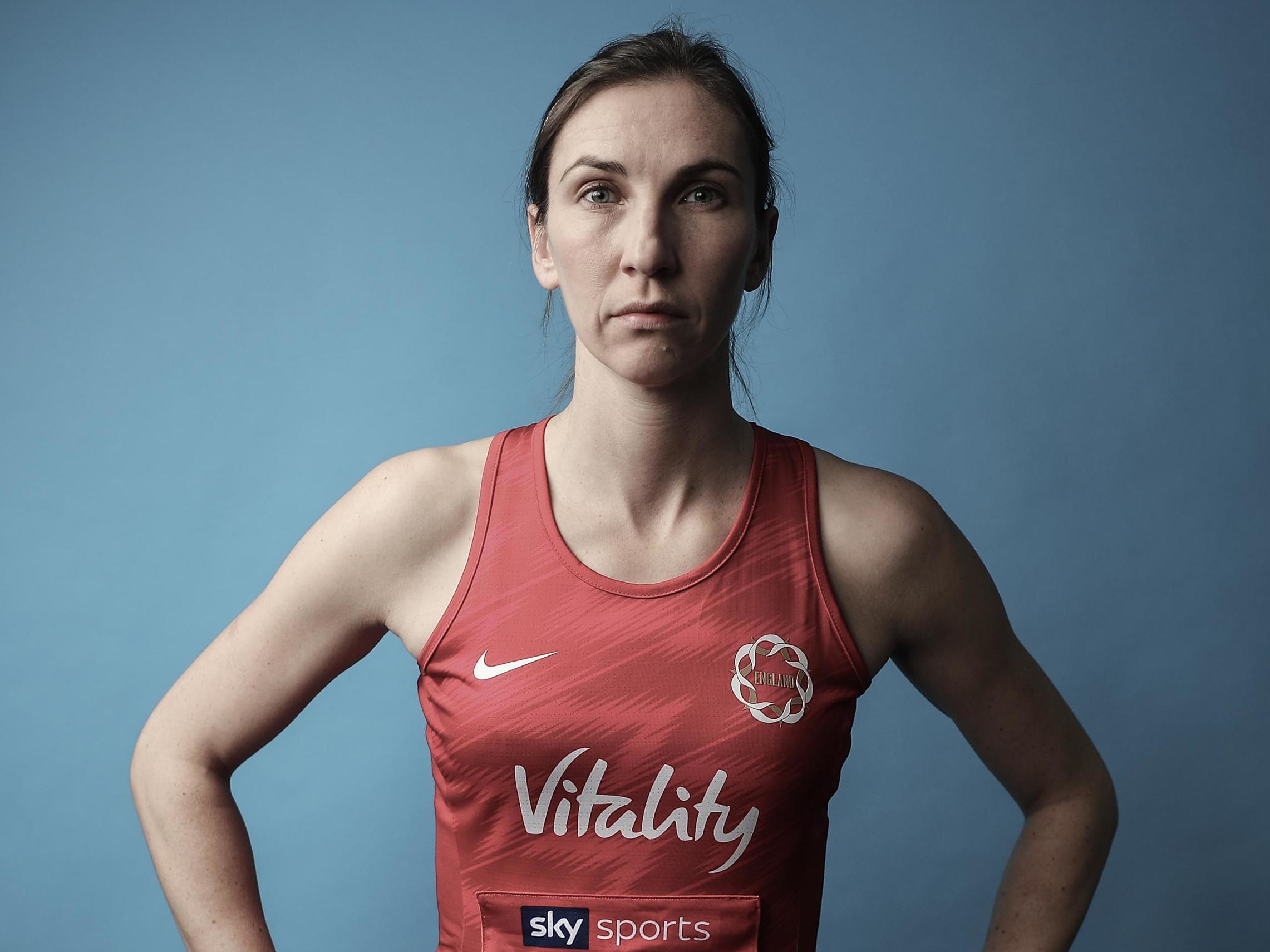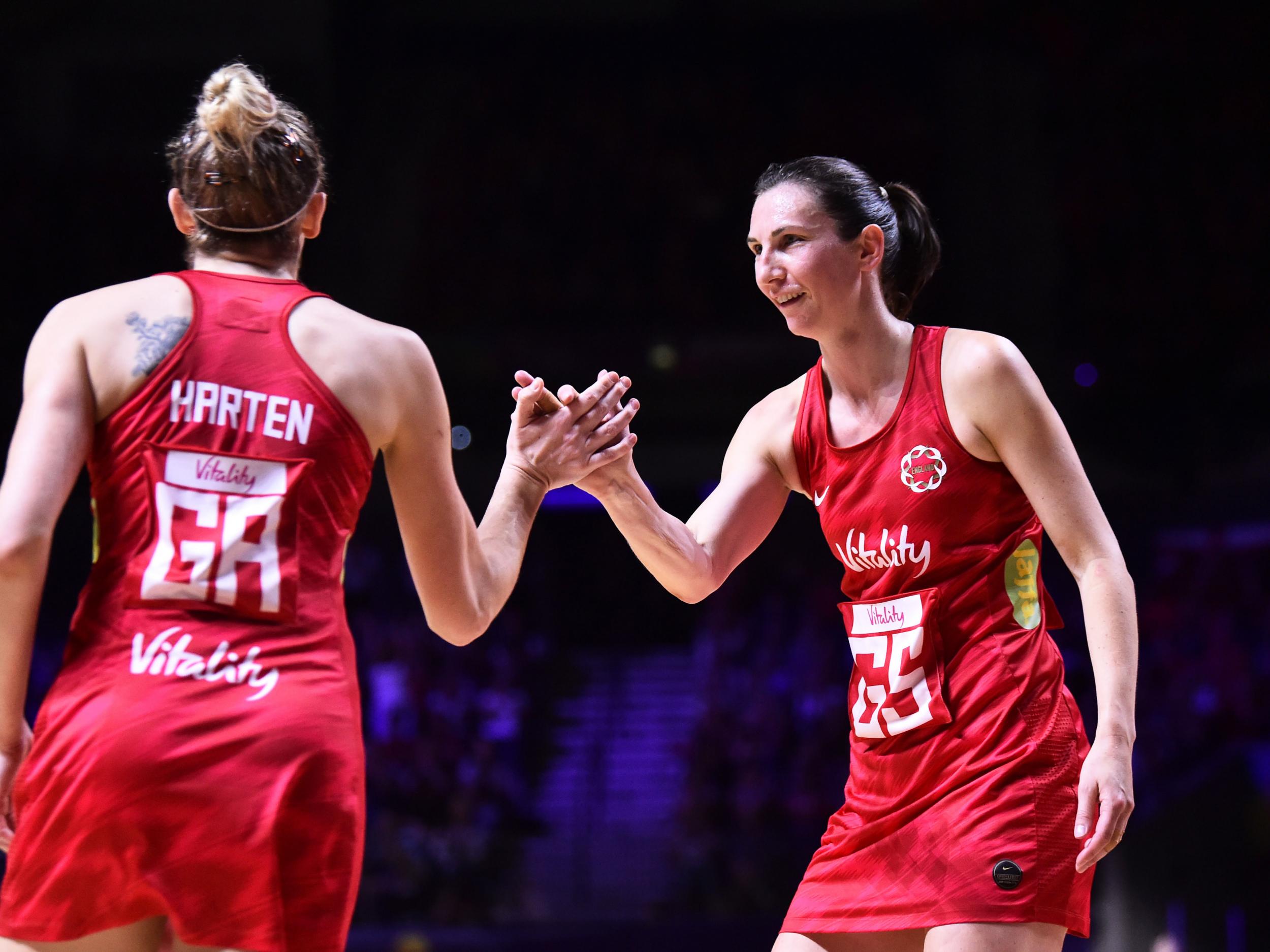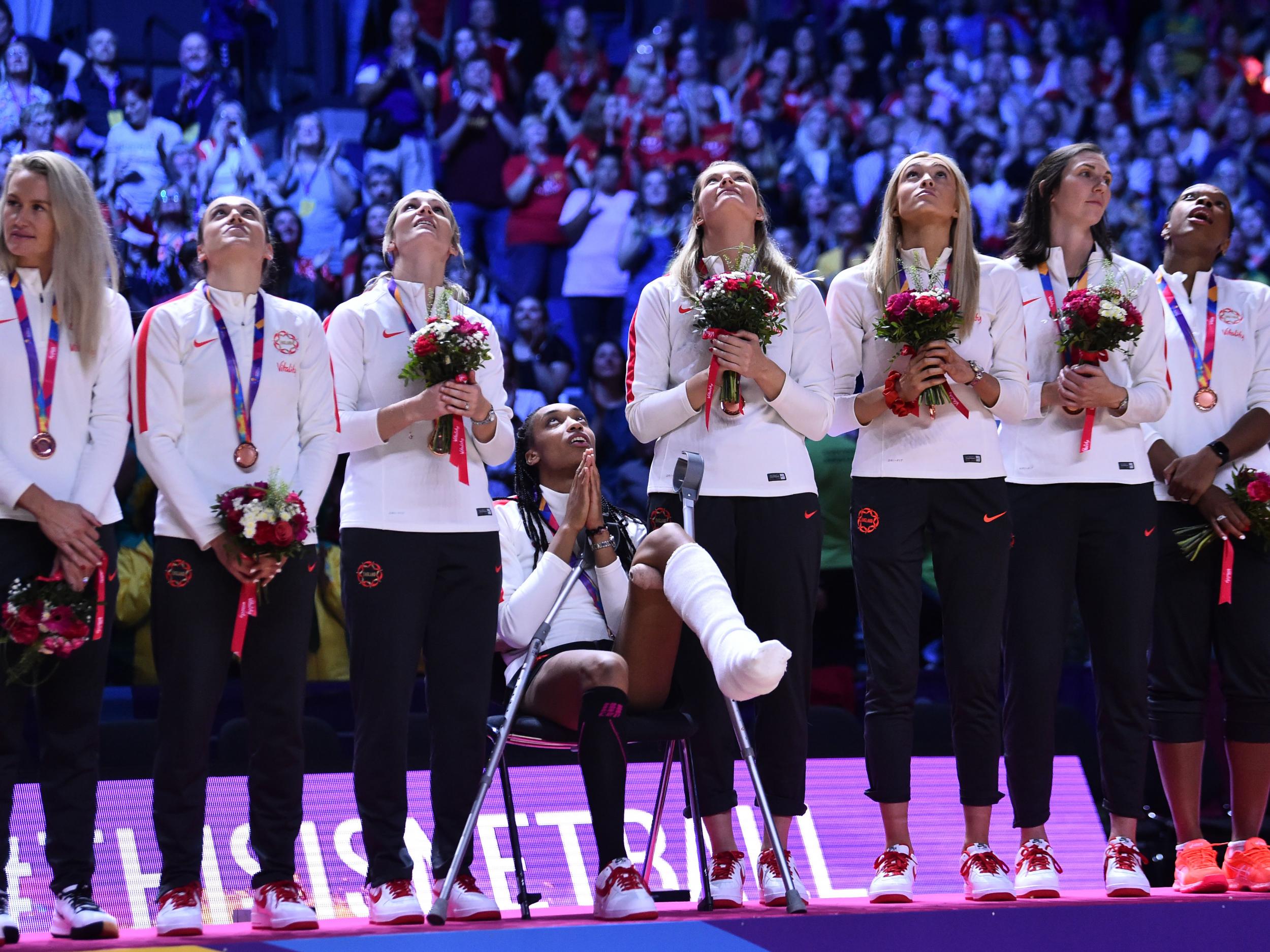How England’s Rachel Dunn balances her elite netball career with her day job in an NHS laboratory
Interview: The 36-year-old reveals how she juggles two demanding careers, and why she rushed back to her lab after winning World Cup bronze

Winning a World Cup bronze medal one day to working in an NHS laboratory the next, Rachel Dunn is the master of the double life.
At 36 years old, the veteran shooter has been juggling playing elite netball with her job as a geneticist for years, and so much has it become a routine that she couldn’t help but return straight to the laboratory the day after coming home from this summer’s Vitality Netball World Cup in Liverpool.
You would have thought that for Dunn, who has won two Commonwealth bronzes since her debut in 2004, a medal from a home World Cup would have called for the biggest celebrations of her career.
But instead, she was pulling on her lab coat at St George’s Hospital in Tooting, an image telling of the sacrifices she has had to make to pursue her professional career.
“It was weirder than usual in many ways, especially because of how big the World Cup was this year,” said Dunn, who was speaking at a TeamUp event in Marylebone, London.

“There was such a buzz around the whole event in Liverpool, so it was a bit strange to be scrolling through my emails in the office the day afterwards.
“I was still able to keep in touch with the high of the World Cup through social media, but it was weird to be in the spotlight and then suddenly back in my lab coat.
“I’ve done it so many times before when we’ve played in Test series, and I’ve always juggled the two while playing in the Super League, but after the high of the World Cup it did take me a fair while to get back into it.
“I did five weeks of work before I finally had my post-World Cup holiday but, I did agree to sign up to a life of work and netball, so I can’t ever complain!”
As netball grows, the sport is generating new pressure and demands at elite level with players and coaches pushing themselves more than ever before.
England captain Serena Guthrie recently revealed she suffered a six-month bout of glandular fever before this summer’s World Cup, while former head coach Tracey Neville kept the miscarriage she suffered a day after leading England to netball Commonwealth gold secret for over a year.
So, whilst juggling her job as an NHS geneticist with playing for England over the last 15 years has been far from simple for Dunn, she knows that sometimes as an athlete, taking a step back from sport can be the best thing you can possibly do to increase your chances of success.
“Elite sport has its demands, whether you’re an athlete or a coach, so I think the mental shift helps,” added Dunn.
“If you have a bad day at work, heading off to training helps me immediately forget about whatever has happened, and vice versa.
“As an elite athlete, you try to keep your body in its optimum position for a long time and sometimes it just doesn’t work – the body has its frailties. You have to take some time out for yourself just to recover or gain perspective on life again.

“Serena and Tracey both committed so hard over the last World Cup cycle and they deserve to have a break.”
Life as an elite athlete can be tough, but if aspiring netballers are looking for a role model to prove it’s possible, it’s Dunn.
She may be 36 years old – the oldest member of England’s 2019 World Cup squad – but Dunn, who has 89 Roses caps to her name, is in the best form of her career despite never playing netball full-time.
Like the rest of the England squad, she was devastated not to come away from Liverpool with a gold medal round her neck, but Dunn feels proud knowing she has helped lay the foundations for future success, whether she gets another chance with the Roses in the new Jess Thirlby era or not.
“We’re still disappointed, I won’t lie, but we are so proud of getting the bronze medal and the legacy our home World Cup has left in getting 160,000 new women and girls to take up netball,” added Dunn.
“The important thing now is trying to keep the buzz of the World Cup going. I’m looking forward to another Vitality Netball Super League domestic season because that’s where netball can be pushed now. We have some of the best players in the world playing over here – it’s got the potential to be huge.
“When it comes to England, I just have to decide now what my legs have got left in them and whether I need to have a break from the international side and allow some youngsters to have some court time.
“I want people to be fighting for the shooting positions. It will make our team stronger. I haven’t really had much time to process it yet, but we have lots of exciting young players coming through and I’ll see where I fit with that.
“I was proud to compete in a home World Cup because I never thought I would get to. I thought I would be too old, or not performing anymore. It was just great timing and I was so happy to be a part of it.”
Join our commenting forum
Join thought-provoking conversations, follow other Independent readers and see their replies
Comments
Bookmark popover
Removed from bookmarks